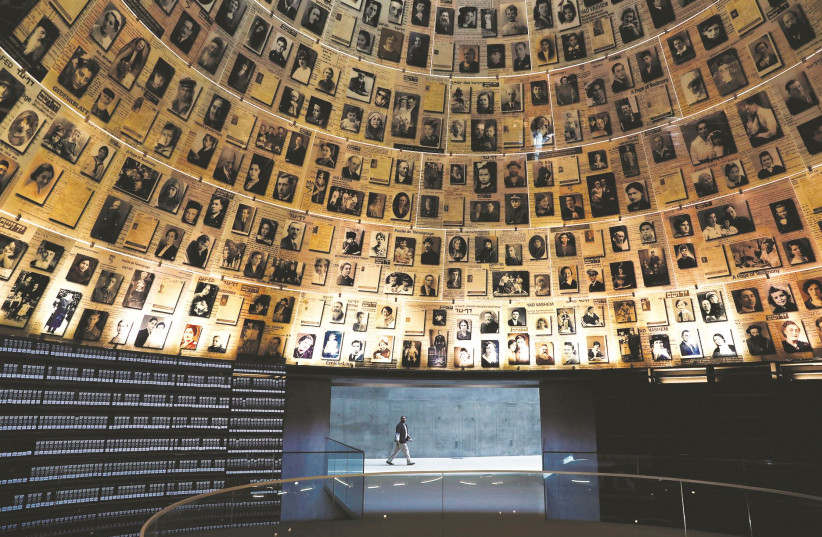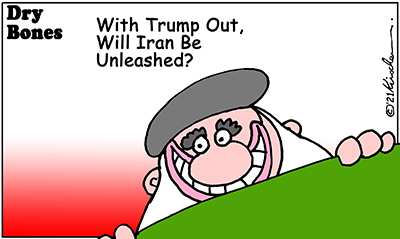Seth Frantzman: Renewed talk of two-state solution illustrates US influence - analysis
The narrative in Israel has been, with perhaps shortsighted reference to the Trump years, that the Palestinian issue no longer matters to the region. Israeli experts say that countries care more about the Iranian threat. That may be true and it may be not. For instance Turkey’s aggressive behavior also appeared to bring Israel closer to Egypt, Greece, Cyprus and the UAE. However, Qatar and Saudi Arabia recently agreed to normalize relations and this inevitably affects views of Ankara.Palestinians Greet Our New President With an Old Trick
There is much more moderate talk from Cairo now about Ankara and also about Iran and other issues. In short, the idea that an aggressive Iran and Turkey would mean that no one cares about Ramallah and Gaza may be oversold, especially as Biden’s administration wants to talk two states again.
WHAT IS clear from the recent talk of Saudi Arabia, Russia, Germany, France, Egypt, Jordan – and basically everyone taking an interest in two states again – is that there is a hunger for a US role and a kind of competition to see who can fit in with the new administration on this issue.
In contrast to the Trump administration’s early discussions with Jordan, the Biden administration has not had a lot of talks with Middle East leaders – yet. The US is focusing on repairing relationships with its neighbors Canada and Mexico, supporting friends in Japan and South Korea, talking about what to do in Afghanistan, and looking at European allies, as well as the Iran issue.
That means that Israel’s assessment that the two-state issue is not the top priority may be correct. However, any signal from Washington regarding moves in the Middle East – and how it may play a role with Moscow, Riyadh or Paris on their interest in two states – will matter. Russia and France’s role is important as both are historic key players in the region. In addition, Israel’s growing relations with the Gulf matter to Saudi Arabia, which has signaled support for these relationships.
How, exactly, anything can manifest itself in the Palestinian arena is unclear. The divided Palestinian authority, Hamas in Gaza, talk of elections – and the tenuous nature of Ramallah’s control of an autonomous statelet – all leave serious questions.
Eying the new administration in Washington, Ramallah is promising full democracy in Palestine. The Palestinian Authority President, Mahmoud Abbas, has declared parliamentary and presidential election in June and July respectively.
It’s an old trick. Not that it went unwelcomed by the marks at the United Nations. Secretary General Guterres was to make that clear. He was followed by a number of Western governments, hoping the 85 year old Mr. Abbas, who was elected for a four year stint back in 2005, will finally face voters and democracy will return.
Ramallah is eager to present its promised election round as superior to that of Israel, which will go to the polls in March for the fourth time in less than two years. Here is how Mr. Abbas’s foreign minister, Riad Malki, put it in a speech to the Security Council today:
“In this period of electoral campaigns, there are those who, in trying to secure votes, remain committed to international law, the two-State solution and peaceful means, and those who instead announce settlements, advance annexation and persist in their provocations.”
It’s almost impossible to parse all fallacies here. Feature “this period of electoral campaigns.” True, Israel’s politics have gone bonkers. The country is overly segmented, with every third-rate politician believing he or she is a potential national leader, forming new political parties almost daily. The prime minister, Benjamin Netanayhu, prefers election campaigns to dealing with trials against him on various criminal charges.
So Israel’s democracy might be in crisis, but a democracy it is, including a tradition of competitive elections, a vigorous adversarial press, independent courts, and a free economy. None of that is evident in the Palestinian territories.
Yes, 16 years after being elected to his four-year presidential stint Mr. Abbas has declared a new election round. But is that a sign of democracy promotion? Is it even a piece of news?
Canada probes UNRWA funds over textbooks for promoting hate
Canada will investigate its contributions to UNRWA following a report that the refugee agency for Palestinians uses textbooks that incite hatred and violence, Canada’s International Development Minister Karina Gould announced.
Gould said she was “deeply concerned” to learn that educational materials UNRWA gave Palestinian children during coronavirus-related lockdowns “contained references that violated UN values of human rights, tolerance, neutrality and nondiscrimination,” the minister said last week.
Canadian officials plan to investigate “how this happened and to reinforce UNRWA’s corrective actions, monitoring and oversight in the future,” Gould added.
Gould also spoke directly with UNRWA Commissioner-General Philippe Lazzarini.
“I reiterated that the use of these educational materials violates the neutrality principles that UNRWA is committed to as a UN organization and under the Framework for Cooperation between Canada and UNRWA,” she stated. “I am personally reaching out to a number of my counterparts to discuss this situation and Canada will remain closely engaged with UNRWA and other donor countries on this and other neutrality issues.” Canada pledged $24 million to UNRWA in 2020.
Gould’s statement came less than a week after IMPACT-se, an Israel-based organization that monitors textbooks, mostly in the Middle East, released a report showing UNRWA distributed content that “promoted jihad, violence and martyrdom, [and] libelous claims that Israel intentionally dumps toxic waste into the West Bank.” The materials also erased Israel from its maps.






































.jpg)




